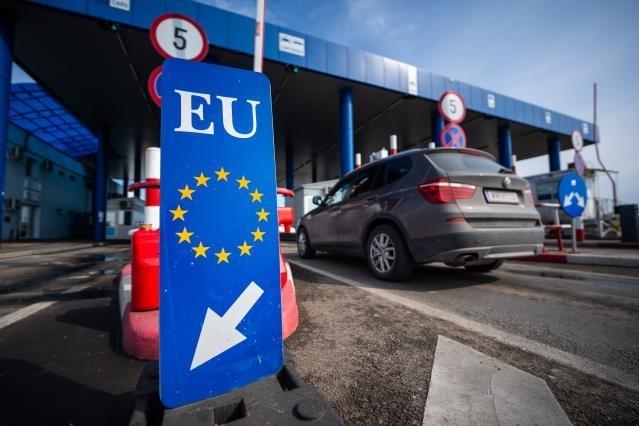
Implementation of the EES System at external borders of European Union; Moldovan Foreign Affairs Ministry unveils new rules of entry to EU states
The Entry/Exit System (EES) will become operational in the European Union states starting from October 12. This is a modern electronic control tool implemented at the EU's external borders - land crossings, airports and seaports.
According to the Foreign Affairs Ministry (MAE), the EES is applicable only to third-country nationals who make short stays - up to 90 days within any 180-day period, on EU territory. The system will record the date and place of entry and exit, and will collect alphanumeric and biometric data - facial images and four fingerprints. At the same time, it will automatically calculate the duration of legal stay.
“The European countries which use the EES will gradually introduce the system at their external borders, with the full implementation scheduled by April 10, 2026. On the transition period, passports will continue to be manually stamped. The system's implementation aims to modernize and streamline border control, enhance security in the Schengen area and prevent illegal stays without altering the present travel rights,” the MAE said.
At the first entry after the system's activation, biometric data will be collected, and in subsequent travels, verification will be automatic, reducing waiting times. Children under 12, individuals for whom fingerprint collection is impossible, as well as holders of residency permits or long-stay visas issued by an EU member state, are exempt from the procedure.
The MAE also reminds that the visa-free regime for Moldovan citizens remains unchanged. However, considering that the data collection process will require additional time, at the travel planning stage, it is recommended to: check the validity of travel documents; allocate extra time for border formalities; avoid overly short stopovers.
The gradual introduction of the system will be managed individually by each EU member state. In the context, authorities recommend that citizens consult in advance the websites of border authorities and embassies in Moldova from EU member states which they intend to visit.
Government approved extension of energy compensation for all families in Moldova
Registration process for heating compensation to start in November
Moldova's military strategy for 2025-2035 approved by Government
New military strategy to guide Moldova's defense for next decade - defense minister says
WEATHER // Yellow Code of heavy rainfall across Moldova; authorities urge caution
Authorities issue warnings for residents amidst Yellow Code for rain in Moldova
Moldova's Academy of Sciences hosts historic meeting: James Rothman, Nobel laureate with Bessarabian roots, alongside Hiroshi Amano, hold dialogue with young scientists
Transplant recipients, physicians pay tribute to organ donors at national conference in Chisinau
Moldovans' community from Norway marks Wine Day at museum in Minnesund
Implementation of the EES System at external borders of European Union; Moldovan Foreign Affairs Ministry unveils new rules of entry to EU states
Moldovan parliament speaker, in interview with AGERPRES Agency, says European integration process can help expedite resolution of Transnistrian problem
Simplified procedures at Costesti-Stanca border crossing of Moldova
Moldova's wines, gastronomy, culture celebrated at Cercle Royal Gaulois in Brussels
Kyiv–Bucharest via Ungheni: new friendship train strengthens ties between Ukraine, Moldova, Romania
Moldovan Foreign Affairs Ministry condemns Russia's massive attacks on Kyiv
PHOTO GALLERY - Varatic - a family album, new publication by Stefan Susai
PHOTO GALLERY // The Passions of Job - drama of family from Bessarabia, on stage of National Theatre in next week-end
Over 80 young people of Moldova to receive monthly allowance through National Program +3,000 Lei for Your Career
Governor of National Bank of Moldova says country integral part of financial Europe, example of innovation
Director of Moldova's Termoelectrica enterprise says there are no reasons to increase heat energy tariffs
Moldovan government warns citizens about online financial frauds
Fuel prices drop in Moldova for second consecutive week, influenced by developments on international markets
DOC // Alecu Russo State University of Balti awarded Order of the Republic
PHOTO // From school to business: how international support changes lives on both banks of Dniester
DOC // New fixed tariffs, capped prices for renewable energy; Moldova's National Energy Regulator's decision published in Official Journal of Moldova


